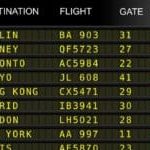
Tourism and recreation businesses suffered their sharpest fall in output in September as cash-strapped consumers tightened their belts.
Output in the sector, which includes pubs, hotels, restaurants and leisure facilities, contracted by a measure of 36.3, the fastest pace since February last year, when Britain was last in lockdown, according to the latest monthly Lloyds Bank UK sector tracker. The metals and mining sector reported the second largest contraction in output, falling from a level of 57.4 to 38.2.
The drop was caused by demand — represented by new orders — falling for a fourth consecutive month at a measure of 38.5 as people reined in discretionary spending amid rising inflation.
Business briefing: In-depth analysis and comment on the latest financial and economic news from our award-winning Business teams. One-click sign-up
The Lloyds Bank report charts the trajectory of the economy and its key sectors. Readings above 50 indicate an increase compared with the previous month, while those below 50 refer to a month-on-month contraction. The report also showed that input cost inflation for businesses had intensified in September for the first time since May.
A record number of manufacturing companies reported that their cost inflation had been driven primarily by rising energy prices, surpassing the previous peak during the 2008 oil price bubble. While rising energy prices have hammered firms, the tracker registered a slowdown in the pace of cost inflation in the third quarter compared with the previous one because of falling shipping costs and lower wage pressures.
Slightly less than half the sectors recorded by the tracker, five out of fourteen, recorded growth in output and new orders.
Jeavon Lolay, at Lloyds Bank corporate and institutional banking, said: “While we expect UK inflation to remain stubbornly high in the coming months, there are clear signs of an easing in pipeline cost pressures.”
Read more:
Leisure and tourism suffer ‘sharpest fall in output’





